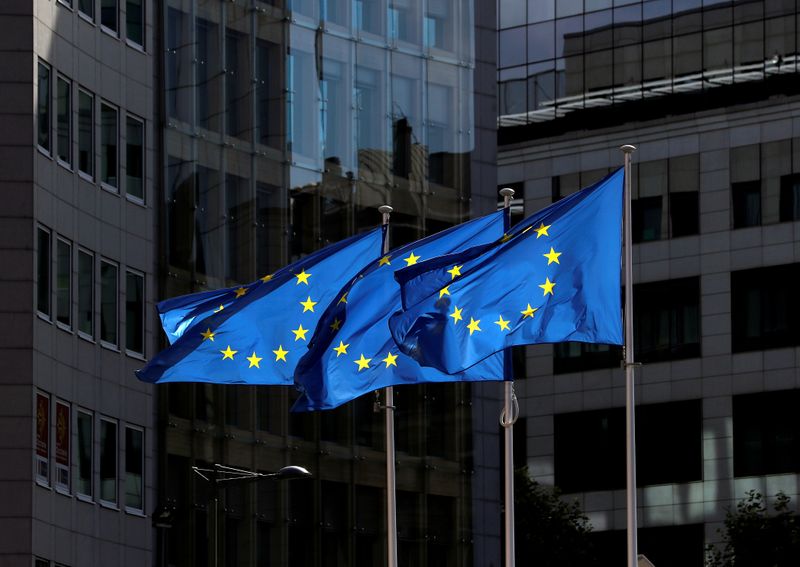By Jan Strupczewski
BRUSSELS (Reuters) - Euro zone finance ministers are holding initial talks on Monday on when and how the expected pick up in economic activity, and the lifting of pandemic lockdowns, should affect the amounts of cash governments now pump into the economy to keep it going.
The preliminary talks are based on the European Commission's forecasts showing the 19 countries sharing the euro will rebound less than earlier expected this year as a second wave of the COVID-19 pandemic put economies in new lockdowns.
"The issue is how best combine to the commitment to short- term support with a credible medium-term fiscal strategy," one senior euro zone official said.
Euro zone governments have made available trillions of euros to economies since the start of the pandemic in February 2020 in various measures to support corporate liquidity, loan repayment moratoria, tax deferrals and salary subsides.
"Now the measures are non-discriminatory. With time, more and more sectors approach normality, it will be time to wean off the corporate sector from public support. Different sectors will have different recovery dynamics," he said.
"There will have to be a much more customised, handpicked approach in the future - that is one of the key topics in the discussions: how to calibrate, how to move from the general measures to the more calibrated measures," the official said.
The key challenge will be to avoid withdrawing support to companies that are viable but the loss of businesses caused by the pandemic has made them dependent on public support, while letting fail non-viable firms, that would have collapsed anyway.
Deciding which companies are fit to survive and which ones should be allowed to fail will be a tough task, probably best accomplished with the help of private investors, who have better tools to determine that than governments, officials said.
"One of the dangers is that the political dynamics pushes everybody to say that we should not withdraw support too early because of the risks involved," a second senior euro zone official said. "While this is true, people forget that leaving support for too long is also very risky."
The ministers will therefore come back to the discussion in April to go over bankruptcy laws in their countries and make sure that non-viable firms can be wound down quickly so as not to slow down the recovery.
"The most important issue would be to have an insolvency framework which guarantees that, in the event of an insolvency, assets are quickly reintroduced into the economy and put to productive uses," the second official said.
"The insolvency itself is irrelevant, because usually the assets are not destroyed. However, if this process does not work, you end up with a problem," the official said.
More harmonised bankruptcy regulations in the euro zone would also help bring closer what the EU calls a capital markets union - making it easier for companies to raise funds via securities issued across the bloc, rather than rely mainly on bank loans in their home country as now.

Such capital markets union, combined with an EU-wide bank deposit guarantee system that would complete the bloc's banking union, would raise the role of the euro internationally, giving euro zone countries some of the privilege now enjoyed only by the U.S. dollar, officials believe.